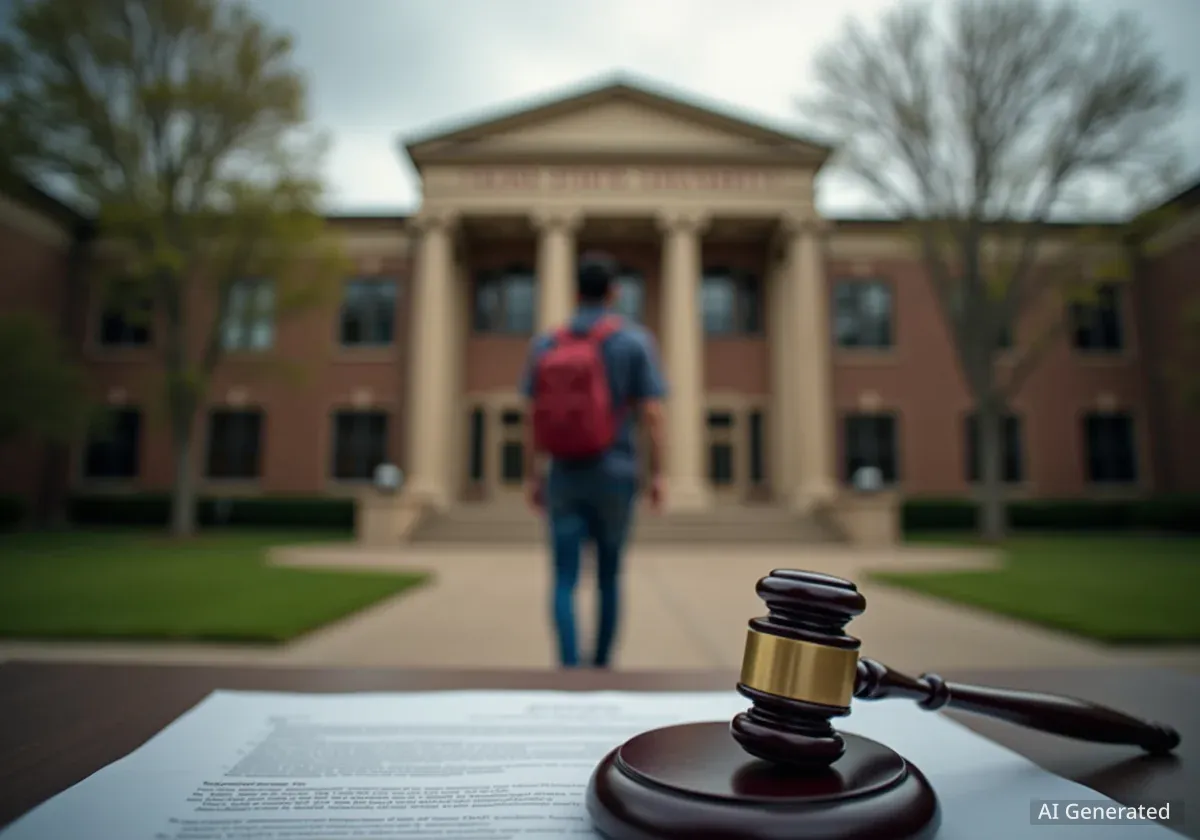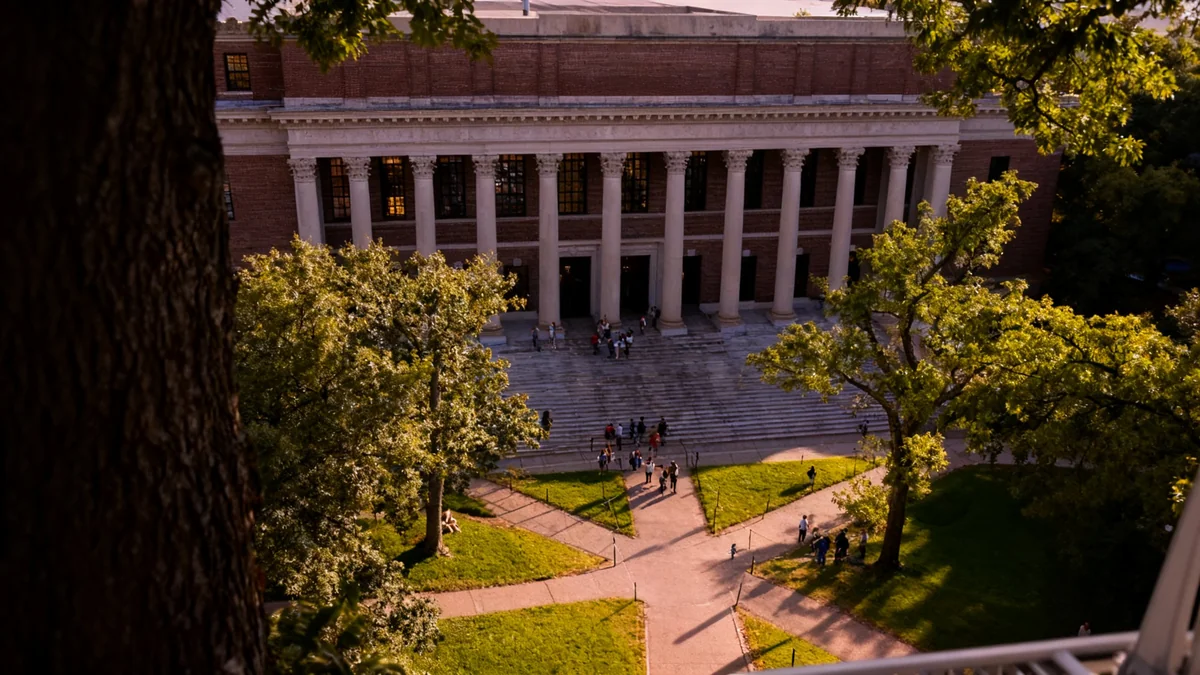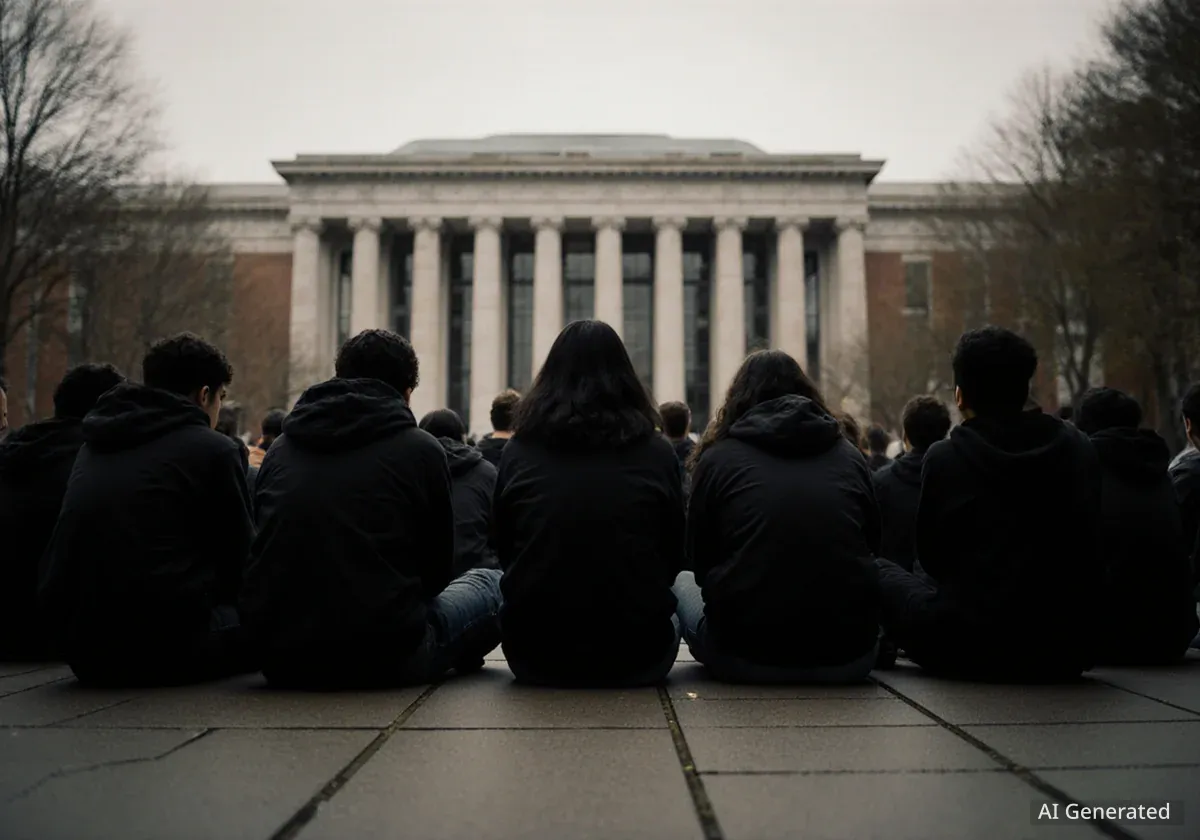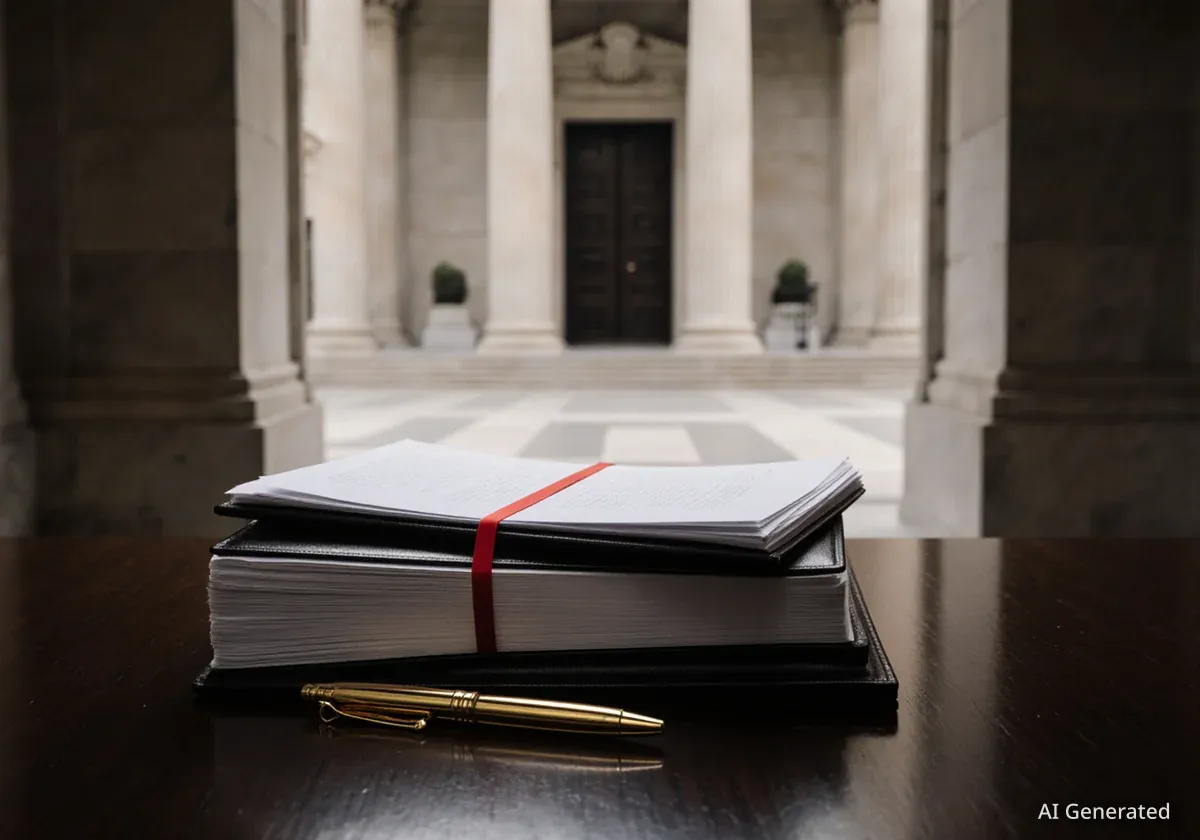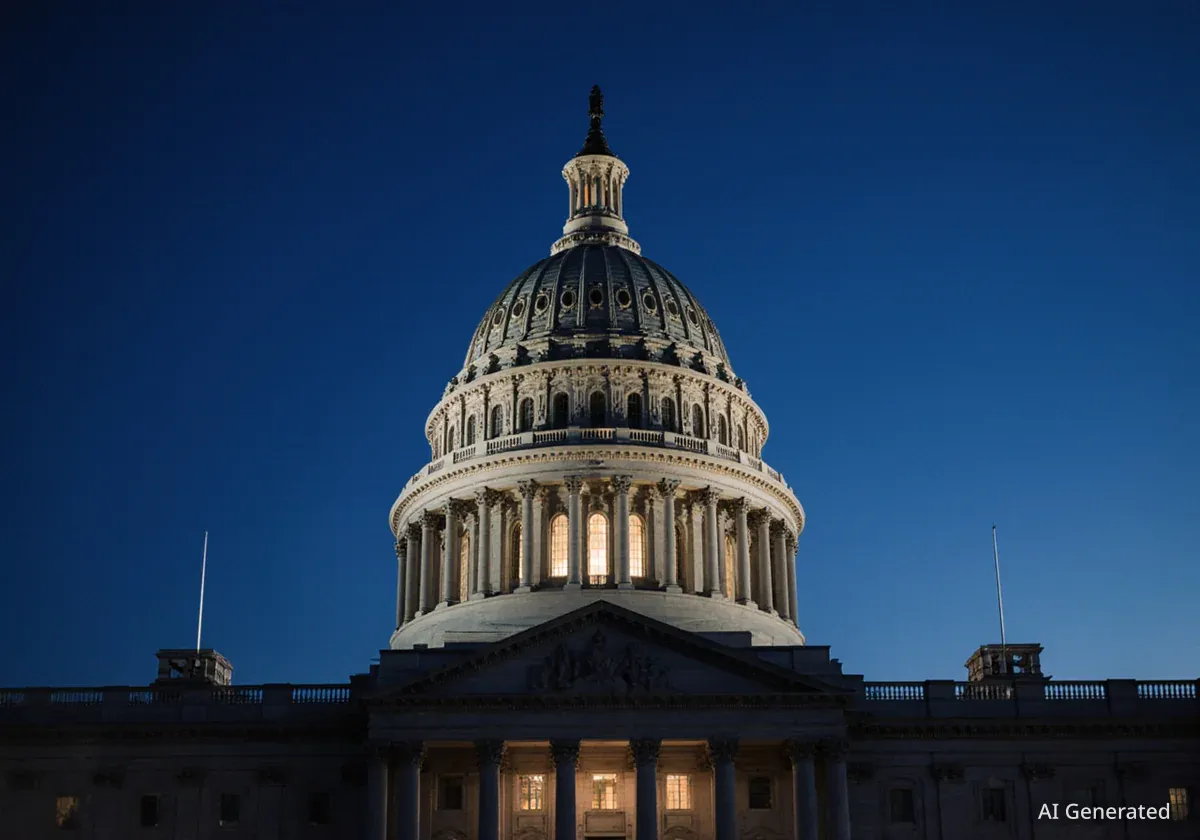Texas State University is facing potential legal action after a student was removed from the institution following a viral video. The video showed the student mocking the recent death of conservative activist Charlie Kirk, prompting a public call for expulsion from Texas Governor Greg Abbott and raising significant questions about free speech rights on college campuses.
Key Takeaways
- A Texas State University student is no longer enrolled after a video of him mocking Charlie Kirk's death went viral.
- Texas Governor Greg Abbott announced on social media that the student was expelled, though the university's statement was less specific.
- A First Amendment legal expert suggests the university's action could be challenged in court.
- The legality of the university's decision may depend on where on campus the incident occurred and the school's free speech policies.
Incident Sparks Public and Political Reaction
A video that circulated widely on social media platforms captured a student at Texas State University making disparaging comments about conservative figure Charlie Kirk. The student's actions, which were perceived as mocking Kirk's death, quickly drew public attention and condemnation.
The situation escalated when Texas Governor Greg Abbott commented on the matter. In a post on the social media platform X, Abbott stated, "That student is now expelled." This public declaration put pressure on the university to act and framed the narrative around the student's removal.
Following the governor's post, a spokesperson for Texas State University confirmed the individual involved in the video "was no longer a student." However, the university's language was carefully chosen. The spokesperson noted they were "unaware of any university communication that stated the individual has been expelled," creating a distinction between the governor's claim and the official university status.
University Policies and Public Pressure
Public universities often navigate a complex environment when student conduct goes viral. They must balance their internal codes of conduct with constitutional protections for speech, all while managing intense public and political pressure. The discrepancy between the governor's definitive statement and the university's more cautious confirmation highlights this challenge.
First Amendment Questions at the Forefront
The university's decision has prompted a debate over the limits of free speech on a public university campus. Legal experts are now weighing in on whether the student's actions, while offensive to many, are protected under the First Amendment.
George Lobb, an Austin-based criminal defense attorney with experience in First Amendment cases, provided analysis to NewsNation affiliate KXAN. He explained that the context of the speech is critical in determining its legal protection.
"If it were in the town square in San Marcos, that would be completely protected speech," Lobb said. "On campus, it depends on whether the university had designated that area as a free speech zone."
This distinction is crucial for public universities, which are considered government entities and must abide by the Constitution. While they can enforce codes of conduct, these codes cannot infringe upon constitutionally protected rights.
The Role of 'Free Speech Zones'
Attorney George Lobb's analysis centers on the concept of designated areas for expression on campus. Many universities establish specific locations, often called "free speech zones," where students can engage in protests, demonstrations, and other forms of expression with minimal restrictions.
The legal standing of the university's disciplinary action could hinge on this geographical detail. "If he was in the zone, he’s good," Lobb explained. "If he were out of the zone, then he could be subject to discipline if he violated the code of conduct."
If the student's actions took place outside a designated area and violated university rules regarding time, place, and manner of speech, the institution would have a stronger legal basis for its disciplinary measures. However, if the speech occurred within a protected zone, any punishment could be viewed as a violation of his constitutional rights.
What Are Free Speech Zones?
Free speech zones are areas on public college campuses where expressive activities are permitted. While intended to provide a forum for speech, they have been controversial. Critics argue that limiting speech to small, designated areas effectively restricts expression across the rest of the campus. Courts have issued mixed rulings on their constitutionality over the years.
Potential Legal Challenge Against the University
The former student may have grounds to take legal action against Texas State University. According to Lobb, a lawsuit could be filed alleging a violation of his First Amendment rights.
Such a lawsuit could seek specific remedies. "[The student] could both seek monetary and injunctive relief to prevent the university for expelling him," Lobb stated. Injunctive relief would be a court order aimed at stopping the university from enforcing the removal, potentially allowing the student to be reinstated while the case proceeds.
A legal battle would likely examine several key factors:
- The precise location of the incident on campus.
- The specific content of the university's code of conduct.
- Whether the student's speech constituted harassment or a true threat, which are not protected by the First Amendment.
- The influence of Governor Abbott's public statements on the university's decision-making process.
The outcome of this situation could set a precedent for how public universities in Texas and across the country handle controversial student speech in the age of social media and heightened political polarization. The case highlights the ongoing tension between maintaining a safe and orderly campus environment and upholding the fundamental principles of free expression.
